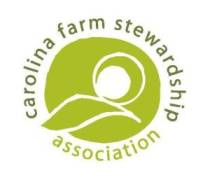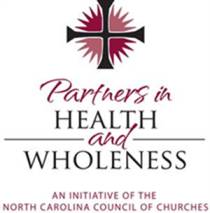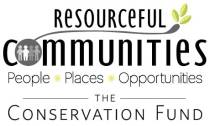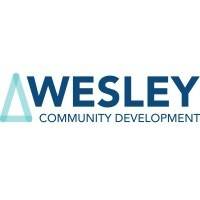Rural Church Intermediaries and Subject Matter Experts
Our Rural Church team works with many partners to support the clergy, congregations and communities of rural North Carolina. Here we describe the expertise of these organizations and intermediaries.

Carolina Farm Stewardship Association (CFSA) is a member-based farmer-driven nonprofit dedicated to helping people in the Carolinas grow and eat local organic food. Recognizing the faith community’s vital role in the food justice movement, CFSA launched the FarmsSHARE Faith Initiative to support rural North Carolina churches in strengthening their food ministries and food system engagement efforts. The FarmsSHARE Faith Initiative is part of CFSA’s innovative FarmsSHARE partnership, a statewide effort connecting small and mid-scale farms, food hubs, and under-resourced communities to support financial security for farmers and food security for those facing barriers to accessing fresh, nutritious foods. The FarmsSHARE Faith Initiative harnesses the grassroots capacity of faith communities in North Carolina to catalyze community resiliency and food access in service of a thriving local food system.

Partners in Health and Wholeness is an initiative of the North Carolina Council of Churches that works to bridge the issues of faith, health, and justice. This work is grounded in the belief that all people are loved by God and that God cares about the wholeness of humanity: mind, body and spirit. By empowering faith communities to improve their health and well-being, Partners in Health and Wholeness hopes to improve the health outcomes of people across the state. The initiative seeks to accomplish this by partnering with faith communities in North Carolina, funding and supporting their health initiatives through the PHW Collaborative. Providing an array of events, grants, resources, and technical support as faith communities become health hubs in their communities. This is holy work that saves lives.

The Rural Advancement Foundation International-USA’s Come to the Table program empowers faith communities to participate in the creation of a just food system through collaboration, capacity building, and advocacy. Come to the Table coordinates a biennial conference, regional learning gatherings, small grants to connect faith communities to farmers of color, Farm and Faith Partnerships projects, and the School for Food Justice, Faith and Storytelling. Contact cttt@rafiusa.org.

Resourceful Communities helps grassroots leaders create opportunities that preserve the rural landscape, access resources, and celebrate local cultures. Through a network of community organizations, faith groups and resource partners, it provides training, materials or funding using a triple bottom-line approach assuring economic, environmental and social justice benefits. The Faith & Food Initiative assists congregations in food ministries and food system engagement by focusing on the intersection of faith, food and local economies, encouraging churches to strengthen their programs through innovative partnerships and projects. A proposed grant in this cycle will fund this assistance statewide through 2024. Contacts: Aaron Hayworth ahayworth@conservationfund.org.
Community Building Programs

The Faith in Rural Communities initiative at the NC Rural Center engages congregations in developing ministries that are relational, strategic and asset-based. Rural churches play a crucial role in helping their communities to thrive. The organization supports churches in this role by building capacity and leadership through coaching, webinars and connections to resources. Contact: Heather Kilbourne at hkilbourne@ncruralcenter.org

The Institute for Emerging Issues’ Faith & Community Initiative – with its signature program, Rural Faith Communities as Anchor Institutions – engages faith leaders (clergy and lay), congregations and partners with supportive guidance, technical assistance, and mutual learning. It provides a diverse form of gatherings, networks, groups and convenings, encouraging civic engagement and community collaborations. The initiative helps congregations identify and understand the root causes of community issues, developing collaborative, multi-sector relationships and nurturing community action plans with and among partners that are increasingly connected, adaptive and thriving.

Wesley Community Development’s Seeds of Change engages local churches in a multifaceted evaluation of their campus usage; trains and resources lay and clergy leaders to connect with their communities; and equips them to use their facilities for the community’s common good. Churches are grouped in learning cohorts to facilitate the creative process and catalyze change efforts. Contact Joel Gilland at joel@wesleycdc.com.

The Ormond Center at Duke Divinity School fosters renewed imagination, will and ability among clergy, congregations and communities as they journey together, becoming agents of thriving. This mission is accomplished by working together to develop innovative solutions that address barriers to thriving, seeking peace, justice and prosperity in communities. Three questions animate the mission to reimagine what thriving can be. Empirically, what does it take for congregations and communities to thrive in today’s world – and who does and does not get to thrive? Normatively, how can communities of faith draw on their distinctive traditions and histories to contribute to the collective understanding of what thriving can be in our time? Practically, how can congregations and their communities work together to create the conditions of a faithful and just thriving for all? Contact: Elizabeth Howze at elizabeth.styron@duke.edu.

The Center for Reconciliation at Duke Divinity School exists to inspire, form, and support leaders, communities and congregations to live as Christ-like agents of reconciliation. Founded in 2005, the Center has become a significant presence in cultivating seeds of reconciliation both locally and globally. Its efforts are focused around three primary activities: connecting scholars and practitioners through collaborative partnerships, cultivating new leaders in the work of reconciliation and transformation, and communicating truth and hope. The Certificate in Conflict Transformation and Reconciliation, facilitated by leading scholars and practitioners in the fields of conflict transformation and reconciliation from Duke University and other institutions, provides a timely learning opportunity for pastors and other church leaders seeking theological and practical skills to foster reconciliation in their congregations and communities. Contact Nina Balmaceda at nbalmaceda@div.duke.edu.
